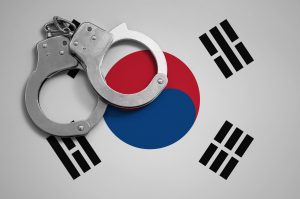South Korean President Yoon Suk-yeol has been detained, in the second attempt by investigators to make good on a warrant as they investigate Yoon for treason charges stemming from his declaration of martial law.
The martial law declaration, although quickly overturned by lawmakers, threw South Korea into political chaos. Commanders under Yoon have testified that the president urged them to break into the National Assembly and “drag out” lawmakers who were gathering for a vote that would force Yoon to overturn martial law. Testimony also suggests that Yoon hoped to arrest a wide swath of politicians – mostly opposition figures, including Democratic Party leader Lee Jae-myung, but also including the then-leader of Yoon’s own party, Han Dong-hoon.
Yoon claims that his declaration of martial law was legal, and that his willingness to obey the law and rescind the declaration following the National Assembly vote is proof of his good intentions.
Yoon was impeached over the martial law episode on December 14. That legal process continues, as the Constitutional Court must decide whether to uphold or overturn the impeachment. It held its first hearings in the case – which Yoon has refused to participate in thus far – on January 14, with the next set for January 16.
But final impeachment is not the only legal peril facing Yoon. Immediately after the martial law episode, South Korean prosecutors opened an investigation into Yoon on charges of insurrection and treason – the only charges that can legally be pursued against a sitting president in South Korea. Kim Yong-hyun, who was Yoon’s defense minister at the time of the martial law declaration, has already been arrested on similar charges, along with several military commanders.
However, Yoon has refused to cooperate with the investigation, refusing to appear for questioning or grant investigators from the Corruption Investigation Office for High-ranking Officials (CIO) access to the presidential compound for search and seizure operations.
Thus the CIO requested, and was granted, a warrant against Yoon on December 31. But when investigators first tried to execute the warrant on January 3, they were prevented from doing so by the Presidential Security Service, which blocked access to the presidential residence where Yoon had sequestered himself. The investigators were forced to withdraw.
In the pre-dawn hours on January 15, the CIO tried again. They reportedly brought over 3,000 police and investigators, compared to around 100 for the first attempt on January 3. Even then, the operation took about five hours, according to the CIO, as the police slowly wound their way past barricades set up by the Presidential Security Service.
Yoon has become the first sitting South Korea president to be detained.
Yoon sent out a video message shortly before he surrendered himself to the authorities, underscoring that he did not believe the CIO had the authority or any cause to arrest him. He said he had given himself up to prevent a violent clash between police and the Presidential Security Service. “I do not acknowledge the investigation by the Corruption Investigation Office… my decision to comply with such illegal and invalid procedures is not an acknowledgment of them, but rather a willingness to prevent unfortunate and bloody incidents,” Yoon said in the video.
The “rule of law has completely collapsed in this country,” he added.
By contrast, Democratic Party (DP) floor leader Park Chan-dae called Yoon’s detention the “first step toward restoring constitutional order, democracy, and realizing the rule of law,” according to AP.
The argument between Yoon and his People Power Party and the DP over the legitimacy of his arrest played out on the streets near the presidential residence as well, as dueling groups of protesters either decried or celebrated the arrest operation.
Yoon underwent 10 hours of questioning after his detention, but sources told the Associated Press that Yoon “exercised his right to remain silent.” He has been transferred to a detention center and can be held for up to 48 hours.
After questioning Yoon, the CIO can seek a formal warrant for the president’s arrest – as opposed to the warrant for his detention – and ultimately request his indictment if they believe there is cause to pursue legal charges.































